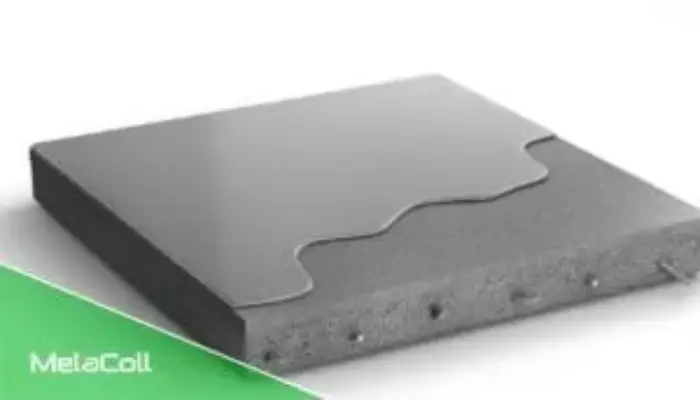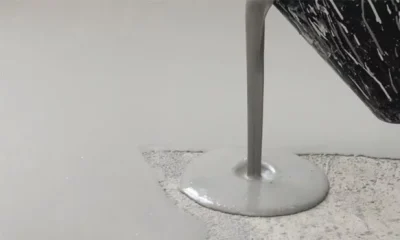
Zelfnivellerende mortel kan vertrouwen op zijn gewicht om een vlakke, gladde en sterke basis te vormen op de ondergrond voor het leggen of lijmen van andere materialen, en tegelijkertijd kan het een grote en efficiënte constructie uitvoeren. Daarom is een hoge vloeibaarheid een zeer belangrijke eigenschap van zelfnivellerende mortel. Bovendien moet de mortel een zekere mate van waterretentie en hechtingskracht hebben, geen scheiding van water veroorzaken en de eigenschappen van isolatie en lage temperatuurstijging hebben. Over het algemeen vereist zelfnivellerende mortel een goede vloeibaarheid, maar de vloeibaarheid van de huidige cementpasta is meestal slechts 10-12 cm. Cellulose-ether is een essentieel additief van kant-en-klare mortel, dat de prestaties van zelfnivellerende mortel aanzienlijk kan verbeteren en een belangrijke rol speelt in mortel.

1. Vloeibaarheid
Als zelfnivellerende mortel is de vloeibaarheid een van de belangrijkste indicatoren voor het evalueren van zelfnivellerende prestaties. In de veronderstelling dat de mortel een regelmatige samenstelling moet hebben, kan de vloeibaarheid van de mortel worden aangepast door het gehalte aan vezel HPMC te veranderen. Een te hoog gehalte zal echter de vloeibaarheid van de mortel verminderen, dus de hoeveelheid cellulose-ether moet binnen een redelijk bereik worden gehouden.

2. Vasthouden van water
De waterretentie van mortel is een belangrijke indicator om de stabiliteit van de interne componenten van verse cementmortel te meten. Om de hydratatiereactie van het gelmateriaal volledig uit te voeren, kan een redelijke hoeveelheid cellulose-ether het vocht in de mortel lang vasthouden. Over het algemeen neemt de waterretentie van de mortelspecie toe naarmate het cellulose-ethergehalte toeneemt. Het watervasthoudende effect van cellulose-ether kan voorkomen dat het substraat te snel te veel water opneemt en belemmert de verdamping van water, waardoor de omgeving van de slurry voldoende water bevat voor de hydratatie van het cement.
Daarnaast heeft de viscositeit van cellulose-ether ook een grotere invloed op de waterretentie van mortel. Hoe hoger de viscositeit, hoe beter de waterretentie. In het algemeen, cellulose-ethers met een viscositeit van 400mpa.s worden meestal gebruikt in zelfnivellerende mortels, die de nivellerende prestaties van de mortel kunnen verbeteren en de dichtheid van de mortel kunnen verhogen.
3. Stollingstijd
Cellulose-ether heeft een vertragend effect op mortel. Naarmate het gehalte cellulose-ether toeneemt, wordt de verhardingstijd van de mortel verlengd. Het vertragende effect van cellulose-ether op cementpasta hangt voornamelijk af van de mate van substitutie van alkylgroepenwat weinig te maken heeft met het molecuulgewicht. Hoe lager de alkylsubstitutie, hoe hoger het hydroxylgehalte en hoe sterker het vertragende effect. En hoe hoger het gehalte aan cellulose-ether, hoe duidelijker het vertragende effect van de complexe film op de vroege hydratatie van cement. Hoe geprononceerder dus het vertragende effect.
4. Buigsterkte en druksterkte
Sterkte is een van de essentiële evaluatie-indexen voor cementgebaseerde cementgebonden materialen om het mengsel uit te harden. Naarmate het gehalte cellulose-ether toeneemt, zullen de druksterkte en buigsterkte van de mortel afnemen.
5. Sterkte van de verbinding
Cellulose-ether heeft een significante invloed op de hechtingseigenschappen van mortel. Cellulose-ether vormt een polymeerfilm met een afdichtende werking tussen het vloeibare fasesysteem en de cementhydratatiedeeltjes, waardoor er meer water in de polymeerfilm buiten de cementdeeltjes komt, wat bevorderlijk is voor de volledige hydratatie van het cement, zodat de hechtsterkte na verharding van de slurry wordt verbeterd. Tegelijkertijd verbetert de juiste hoeveelheid cellulose-ether de plasticiteit en flexibiliteit van de mortel, vermindert de stijfheid van de overgangszone tussen de mortel en de ondergrond en vermindert de slip tussen de interface. Tot op zekere hoogte wordt het hechtingseffect tussen de mortel en de ondergrond versterkt.
Bovendien wordt er door de cellulose-ether in de cementpasta een unieke grensvlakovergangszone en grensvlaklaag gevormd tussen de morteldeeltjes en het hydratatieproduct, waardoor de grensvlakovergangszone flexibeler en minder stijf is. Daarom heeft de mortel een sterke hechtsterkte.

Uit wat we hierboven hebben besproken, kunnen we concluderen dat cellulose-ether een belangrijke rol speelt in zelfnivellerende mortels. De belangrijkste factor voor een goed eindresultaat is daarom het kiezen van geschikte cellulose-etherproducten.


Laat een reactie achter